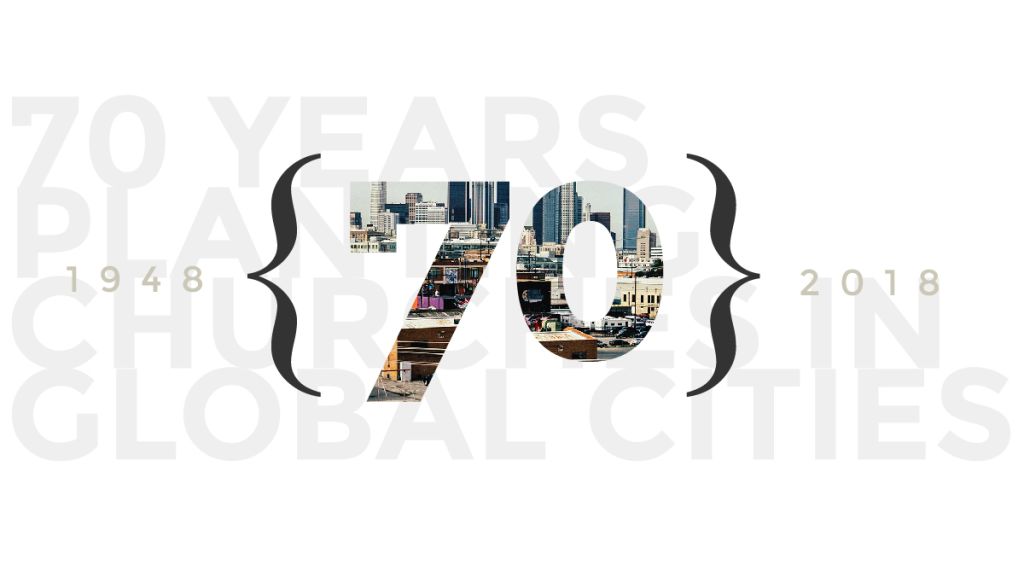Values that Shape Culture

By Mike Hickerson, lead pastor of Mission Church in Ventura, CA
When we started Mission, I would love to tell you we knew exactly what we were doing…we didn’t. I would love to tell you we had values and strategy clearly marked out…we didn’t. I would love to tell you we knew what it was going to look like in three years…we didn’t. I would love to tell you we knew how hard it was going to be, how much fun it was going to be, how we couldn’t imagine missing this…we didn’t.
What we didn’t know in the beginning seemed to significantly outweigh what we did, and so we began to clarify what really mattered to us—the things we wanted to be true about us—and started sketching a list on the side of the whiteboard in our office of all the things we were learning. Someone would say something profound in a meeting, and we’d say, “Oh…that’s good. Write it on the board.” These soon became our values, and below I’ve listed five that have shaped, and are currently shaping the staff and volunteer culture at Mission. It’s not an exhaustive list or even a correct list; it’s just a list of what we are learning.
1.) WHAT CAN'T A VOLUNTEER DO?
This has been an extremely challenging and shaping question for us: “with enough time, character, capacity, and giftedness, what can’t a volunteer do?” There is so much latent capacity for ministry in our churches from people who are merely spectators to the hope God is bringing in the world. Why is that? Jesus left the future of the Church to unschooled, ordinary men. How can we not do the same?
I have been learning that it is usually me, usually us, as leaders who get in the way. Sometimes it’s because of pride. We think, “they can’t do it like I do it,” or, “if I don’t, then it won’t.” This is flawed and usually exposes striving and self-importance. Sometimes, it’s because of procrastination; we are constantly just working on the next thing, pulling it off, and we aren’t making time to invite people into the bigger picture. And sometimes, it’s passivity. We assume people are too busy, or wouldn’t want to be invited in, so we say “no” for them before we let them answer for themselves. But when we do this, we are robbing them of being a part of the same story we believe is worth our entire lives.
This simple question has massively impacted our culture at Mission. We have had non-paid staff volunteers as Student Ministry Director, Communications Director, Chief Party Thrower, Teaching Pastor(s), Connections Director, Creative Content Contributor, Kids Administrator, and Groups Coordinator.
As a church plant, we could have never hired these positions. It would have been years before we would have been able to have these paid positions on our staff team, but the impact we’ve been able to have because of them is immeasurable. Invite people in! What can’t a volunteer do?
2.) YOU CAN'T DELEGATE WHAT YOU CAN'T DEFINE.
Two of my strengths are Ideation (coming up with ideas) and Arranging (helping get people and systems to operate more effectively). Add that to my ENTP personality, and you get me as a leader that has lots of ideas to change and move things around, but someone who can’t always get what’s in their head out for everyone to see.
This value has helped us fight for clarity in the “what” and the “how” we are handing off ministry roles, tasks, and responsibilities. We’ve adapted a line from Jim Collins' book Good to Great, “Right people on the bus, seats later…” We constantly ask questions like, “What is the role? What are the expectations? What is success? How many hours? Which days? Who is the direct report? When will we meet?"
This helps us all head the same direction with the same vision, with clarity and common language about what’s expected and where we’re going.
3.) DON'T START SOMETHING WITHOUT A CLEARLY DEFINED LEADER
Every team needs a leader or coordinator, and I have made the mistake of putting a group of talented volunteers and/or staff onto a certain project without identifying a leader. It always leads to chaos, conflict, and clean up!
This has also helped us when people try to “should” on the church. Here are warning signs of “shoulding:” phrases like “the church should…” or, “you guys should…when will we have ________?” It is very freeing to say, “We won't start anything without a leader who can sustain it.” And, it’s very freeing to not start anything without a leader who can sustain it. When you feel energy around starting something new and even see the need, trust that God will bring the right person at the right time to lead it to the right place, and wait to start it until He does.
4.) THE TEAM YOU ARE ON IS GREATER THAN THE TEAM YOU LEAD
This value has helped us have the right conversations around “silos,” so we don’t have ministry team turf wars. We don’t want a team full of people at a table who only have their ministry in mind when we are making decisions that impact the whole church, because it will hinder our ability to make the best decisions.
I’m on our Management Team, and I lead our Executive Team—which is most important? The Management Team, every time! Kelly is on our Executive Team and leads our Connection Team—which is most important? Executive Team, every time! Kayanna, leads the Pre-school Team, but is on the Mission Kids Leadership Team—which is most important? Mission Kids, every time!
It takes intentionality and effort to put the overall mission above our individual ones, but it’s vital for the church to thrive and every Ministry to be on the same page. When the team you're on is greater than the team you lead, every team wins because the Church wins.
5.) MARRY THE MISSION, DATE THE MODEL
The why we are doing what we are doing is way more important than how we do it! In fact, we are always willing to change the how if we find a better way. As a team, we are committed to the mission of helping people find and follow Christ, but we hold loosely to the models we use.
In fact, we believe that WHY you do it > WHO is doing it > WHAT is being done > HOW it is being done. Our mission will not change, but the way we accomplish it will, and in fact, it should! We should be innovative and free to challenge, fail, reevaluate and try, doing whatever we can to help people find and follow Christ.
At Mission Church, we are very much a work in progress, but we are committed to being the healthiest staff culture we could possibly be. And these five values have helped shape us to this point. We still don’t know exactly what we’re doing, but I’m grateful for all the things God has done in spite of us, and looking forward to learning all the things He wants to teach us in the years to come.
Mike is the lead planter for Mission Church in Ventura, CA.

